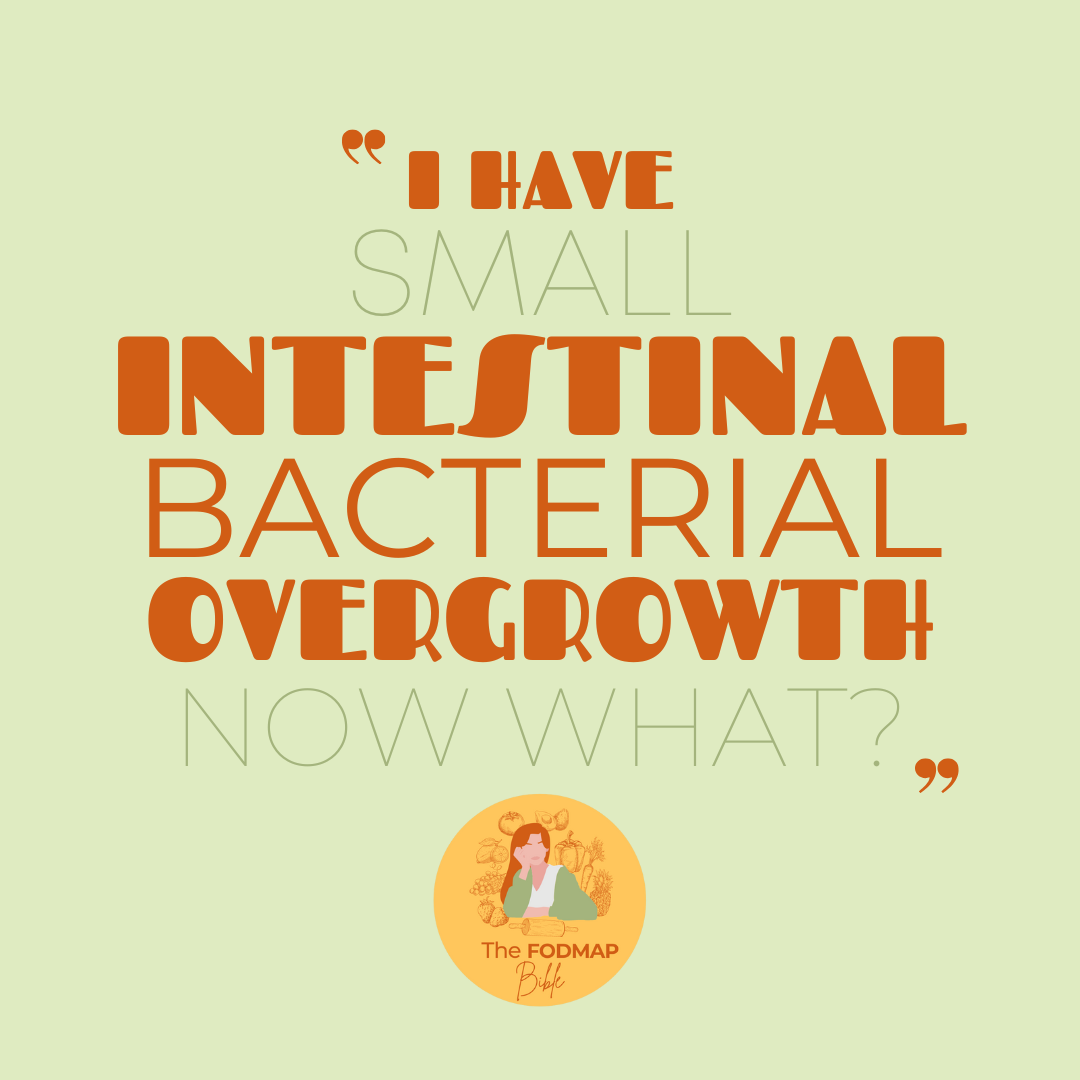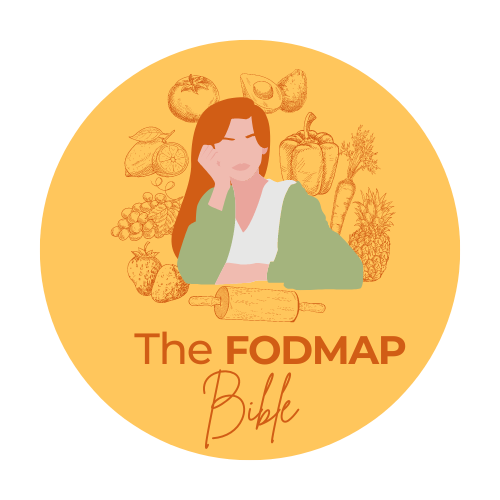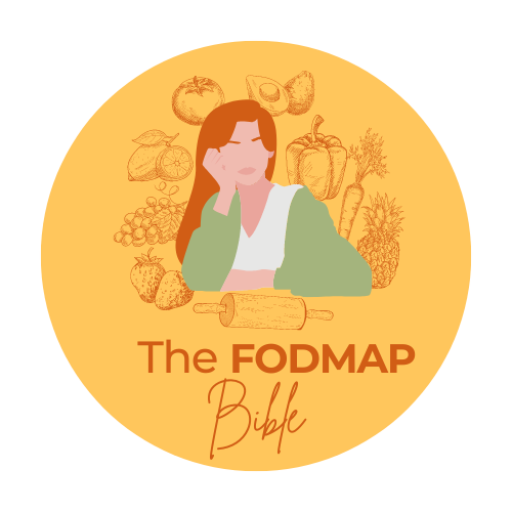
I Got Diagnosed With Small Intestinal Bacterial Overgrowth (SIBO), Now What?
What is SIBO?
Small Intestinal Bacterial Overgrowth – or SIBO – is a gastrointestinal disorder. Like the name of the condition suggests, those who suffer from SIBO experience an overgrowth of bacteria in the small intestine. Normally, the gut flora are able to regain a healthy balance, but with SIBO patients this is not the case.
‘Your body maintains the balance of flora in your gut through a complex network of chemical and mechanical functions. For SIBO to occur, one or more of these functions must be failing.
[…] The emptying of food contents from the smaller intestine into the larger intestine is [an] important cleansing mechanism. If this mechanism is slowed or impaired, the bacteria in the smaller intestine have more time to breed, and the bacteria in the larger intestine may begin to creep upward [into the smaller intestine].
[…] Bacteria in the smaller intestine digest carbohydrates and convert them into gas and short-chain fatty acids [and thus] more bacteria can mean more gas and other byproducts, which often triggers diarrhea [and other symptoms].
The bacteria also consume proteins and vitamin B12 […] that are supposed to be there to help you digest fats. All of this leads to poor digestion of fats and poor absorption of nutrients. […] The result is a variety of gastrointestinal symptoms in the short term, and [potential] malnutrition in the longer term.’*
Symptoms of SIBO vary from person to person, but can more or less be summarized as:
● Bloating;
● Constipation;
● Diarrhea;
● Nausea;
● Abdominal pain;
● Abdominal distension;
● Indigestion;
● Gas;
● Unintentional weight loss;
● Fatigue.
Although this list probably won’t excite you and I sadly have to admit that yes, there is more bad news – luckily, there’s also some good news.
Good & bad news
The main difference between Irritable Bowel Syndrome (IBS) and Small Intestinal Bacterial Overgrowth is that IBS is a disorder that gets diagnosed when you have symptoms that cannot be clinically explained otherwise, whereas SIBO can be clinically verified and treated. However, ‘some studies indicate that up to 80% of people with IBS have SIBO. The prevalence among healthy people is unknown. Doctors assume that SIBO is generally underdiagnosed. Mild cases may be asymptomatic, while moderate cases [may] feature many non-specific symptoms that [may] overlap with other conditions, such as IBS. SIBO isn’t often directly tested for, and even when it is, the tests available are imperfect.’*
What causes SIBO?
Unlike with Irritable Bowel Syndrome, Small Intestinal Bacterial Overgrowth does have a couple of clear causes:
● Low stomach acidity can cause SIBO, as it ‘reduces the body’s ability to moderate bacterial growth.’
● Small intestinal dysmotility can cause SIBO as it allows waste to be retained in the smaller intestine for too long, before being emptied into the larger intestine. Allowing small intestinal bacteria to continue to multiply, while enabling larger intestinal bacteria to enter from the larger intestine into the smaller intestine.
● Structural problems can cause SIBO, as they can undermine both small intestinal motility, as well as the regular clearing of residual bacteria. In addition, structural problems can manifest as extra nooks and crannies, in which bacteria can accumulate.
● Lastly, overuse of medications (like antibiotics) might cause SIBO, as it can cause a bacterial disbalance in the gut.
Treatment of SIBO
Small Intestinal Bacterial Overgrowth is oftentimes a complication of another gastrointestinal disorder. For that reason, the treatment of SIBO should look into all three of the following things: (1) the overgrowth itself, (2) the complications SIBO might cause and (3) the underlying cause allowing for the occurrence of SIBO.
Generally the treatment of SIBO includes a course of antibiotics and a low-carb diet like the low-FODMAP diet. In the case of malnutrition which led to mineral and vitamin deficiencies, a dietitian might additionally recommend nutritional supplementation.
Everything you need to know about FODMAP’s in relation to SIBO
The low-FODMAP diet is often advised, because it’s a low-carb diet which starves the overgrown bacteria in the gut. Even though it may work, it may also not work. However, if you’ve been suffering from any of the symptoms we mentioned above, do yourself a favor and consider following the low-FODMAP diet. In the best case scenario you figure out what you do and do not tolerate, while reducing or even getting rid of your symptoms altogether. Worth a shot right? So what even are FODMAP’s? And why should you not consume them?
FODMAP stands for…
F ermentable
O ligosaccharides
D isaccharides
M onosaccharides
A nd
P olyols
These are the names of a variety of short-chain carbohydrates which are poorly absorbed and rapidly fermented by the gut bacteria in the gastrointestinal system of people suffering from Small Intestinal Bacterial Overgrowth (SIBO) and Irritable Bowel Syndrome (IBS).
Welcome to the SIBO club!
I will be brutally honest with you. Getting diagnosed with a gastrointestinal disorder (like SIBO) and starting out on the low-FODMAP diet – to me – felt like a lifelong prison sentence. I truly thought of it as the end of the world. It forced me to learn to cook everything – from scratch, in a completely different manner, using completely different ingredients. Steering clear from certain things, while incorporating (and learning how to cook with) others.
Now, 5+ years after my diagnosis, I’ve learned to cope with my diagnosis and cook my way around FODMAP’s, while producing actually enjoyable meals. Yes, I didn’t think it was possible either, but here we are and man it’s good to be back to enjoyable food and a diverse range of meals. Hopefully the articles on our website, the tips & tricks on our social media and obviously the recipes we share on here can help ease your journey on the low-FODMAP diet. But wait, what even happens to the body when FODMAP’s are consumed? And why do they cause so many symptoms?
When FODMAP’s are consumed – by individuals with SIBO or IBS, a variety of things can happen in the gastrointestinal track. When the FODMAP in question can not be broken down properly – due to a lack of digestive enzymes, like with lactose for example (click here for an in depth article about lactose) – this results in undigested remnants of FODMAP’s. These remnants then get taken from the small intestine, into the larger intestine. During the fermentation process of these FODMAP’S – in the larger intestine – a variety of gasses are produced as a by product of digestion, leading to bloating and abdominal pain.
Osmosis
When the FODMAP in question can not be broken down, it can also have an osmotic effect on the gut. Osmosis refers to the movement of water molecules from a solution with many water molecules, to a solution with little water molecules. This occurs in the digestive system as a result of compounds like salt or poorly / undigested remnants of FODMAP’s, because these types of compounds attract water like a magnet, resulting in a more watery stool than it would have been without the occurrence of osmosis in the gut. This can also lead to diarrhea.
Concluding, although you’re finding yourself in quite a shitty situation (pun intended), nothing is everlasting and there’s a solution to everything. So, hey you! It’s good to have you 🙂
I cannot wait to help make your journey on the low-FODMAP diet a bit more easy, bearable and most certainly a whole lot tastier!
Want to know more about all things low-FODMAP? Follow us on Instagram & TikTok @theFODMAPbible – for recipes, inspiration, explanations and loads of advice on how to make your life on the low-FODMAP diet as enjoyable as it would have been without. Trust me: you won’t regret it, pinky promise!
We hope to see you on our socials 🙂

*Don’t sue me if your symptoms don’t improve. I don’t make up the rules and I don’t give out guarantees. I highly recommend for you to seek help from a healthcare professional, who can offer you the right guidance. Please be cautious of the information displayed below.
Please note that we are NOT doctors & we do NOT provide any medical advice
If you’re struggling with symptoms – that could potentially be a gastrointestinal disorder like Irritable Bowel Syndrome (IBS), Inflammatory Bowel Disease (IBD) or Small Intestinal Bacterial Overgrowth (SIBO) – we strongly suggest for you to seek medical help and recommend you to reach out to a healthcare professional, who can offer you the right guidance.
We want to emphasize that the low-FODMAP diet is a medically induced diet, that should be started only when a doctor diagnosed you with a gastrointestinal disorder and should always be done under strict supervision of a specialized dietician or other healthcare professional.
Nonetheless, we maintain strict policies when it comes to the prevention of spreading fake news. Our posts are written by research journalist @byellenmoore and are based upon both scientific research and her own personal experiences with being on the low-FODMAP diet, as a patient suffering from Irritable Bowel Syndrome (IBS). We share what we know, to give you a better understanding of that from which you suffer, in order to make your journey – going low-FODMAP – a little bit easier!
Sources
*SIBO (Small Intestinal Bacterial Overgrowth): Symptoms, Diet, Causes & What It Is.” n.d. Cleveland Clinic. Accessed September 26, 2022. https://my.clevelandclinic.org/health/diseases/21820-small-intestinal-bacterial-overgrowth-sibo.





